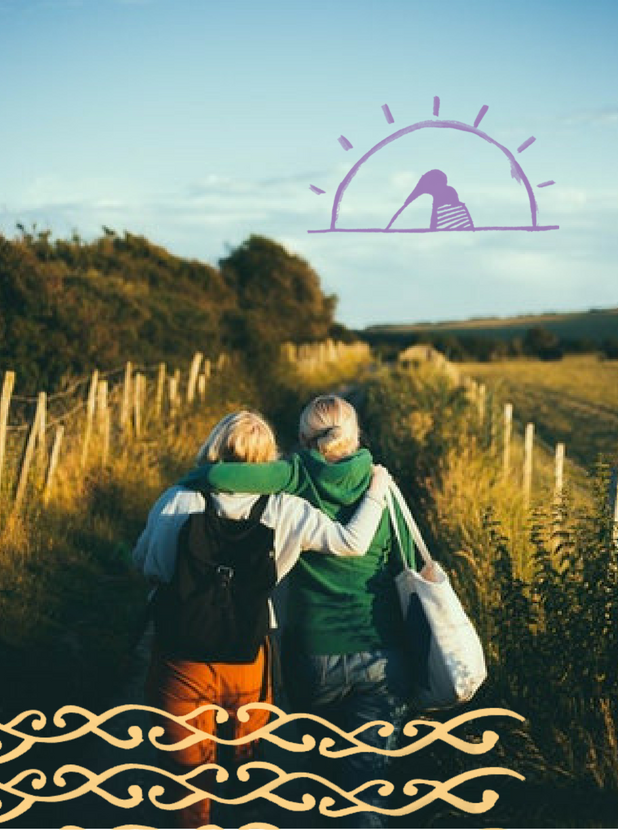Time's Up NZ!
You might have heard of VICTIM BLAMING.
This happens when survivors (mostly/pretty much always female) come forward with reports of sexual assault.
They're treated with suspicion, distrust and are often BLAMED for what happened to them.
They're told things like you shouldn’t have been out so late, had so much to drink, wearing those clothes, sending off a “vibe” that they want to have sex.
WHAAAAAT?!?! It seems nuts to think people react this way but sadly it is all too common.
We talked to a survivor about her experience of victim blaming.
She wants to fight back against these reactions and show how this can happen to ANYONE - even someone studied sexual assault and harassment at law school, and not just the experience of assault but the experience of being blamed.
It’s only through supporting one another that we can create a fairer world for survivors.
Here's what happened:
“I was partying with colleagues. I'd crashed in my friend's bed and awoke only to find someone who I once considered a friend – sexually assaulting me.
Despite the feelings of terror, I subsequently tried to belittle and deny the situation. I was drunk, I feared it was my fault, and I didn't want to jeopardise my journalism career.
I just didn’t want to acknowledge that anything had happened, and if I did acknowledge it I would feel shame and responsibility”
This is SUCH a common response for a survivor who has been assaulted by someone she knew (which is the case in 9 out of 10 times). They try to ignore the situation and continue life as “normal”. Unfortunately, eventually you just can't deny what's happened to you and how's it's hurt you.
“Four months passed and I found myself crying at work, burning out, drinking heavily and feeling blue and anxious, most of the time. It was only once I realised I had nothing left to lose that I took action.”
Our survivor took the very brave step of reporting her experience to the police. Unfortunately, even though it is very common to delay such a report it had another effect on the people around her:
“Because I'd refused to acknowledge the situation at the time, this somehow made people doubt whether it had happened the way I reported it, at least in the eyes of some of my colleagues, friends, and acquaintances. Even once I'd gone to the police and documented what had happened on the record, I wasn't seen as legitimate.”
Other people’s reactions were really hard to deal with, and made it harder for her to get through the healing process, she says “At the time I joked about my situation.
To offset feelings of shame, I tried to make it super casual or light for fear of burdening those around me.
Frankly, I didn't want to be perceived as "weak" or "a victim" – this in my opinion was, and is wrong, as it undermines all those who survive sexual assault.”
This experience can be very lonely.
Survivors of sexual assault almost always say they feel alone and different from other people or the person they once were. That is why it is SO IMPORTANT to be talking about sexual assault and finding ways to connect positively to each other.
Our survivor wants to make changes, by writing and sharing her story. She says people don’t know enough or understand what the experience of a survivor is like, so in sharing stories we can turn to each other with support instead of turning away.
She says she had counseling and support from some friends and family which helped. And “TALKING about sexual assault,and consent in positive way, is the way forward"
You can be a part of this change. Stand up when you hear victim blaming behavior in your school or community. Reach out to girls who have been targeted by vicious rumours, or are all of a sudden spending more time alone.
Together we can make change for a better world and #beaforce.
PS If you or someone you know has been sexually harmed, remember that Em's here for you if you need us
Check out our Empower section for how you can cope when life is feeling just a little bit sh*t.
Em was created by and for girls who have been hurt by abuse - you're not alone. We've got stories about girls who've experienced sh*tty things like abuse and how they got through it. We've got lots of stuff you can use from the comfort of your bedroom to help you get through when stuff is just feeling really hard.
These (FREE) services are also available to you, including 24/7 texting & face-to-face counselling. Take a friend along if it'll help you to open up and ask for support.
If you need some advice, and feel free to send us a message or an email hello@dearem.nz if you want to get in touch.with our youth counsellors.











